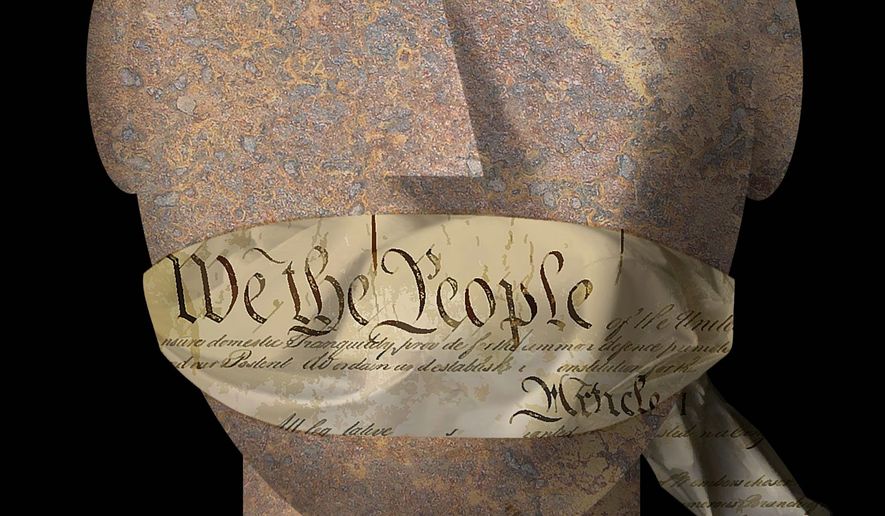OPINION:
At its core, free speech means that the government can’t squash or silence messages it doesn’t like. Nor can it punish the people who voice those messages. Preventing that kind of government action is why the Founders adopted the First Amendment.
The real First Amendment.
As the late Justice Antonin Scalia once pointed out, however, there is “an entirely separate, abridged edition of the First Amendment” at work in some of the Supreme Court’s jurisprudence. This abridged First Amendment says you get all the free speech protections of the First Amendment — unless. It says the First Amendment fully applies to you — unless.
That “unless” is the undoing of free speech.
For years now — a lot of years — the Supreme Court has relegated to second-class status, at best, the speech rights of those who oppose abortion. The court’s practice of jettisoning legal rules and doctrines to safeguard that infamous procedure has been so prevalent that Justice Scalia gave it a name: the “ad hoc nullification machine.”
The poster child for the machine’s distortion of basic free speech doctrine is Hill v. Colorado, which the court handed down in 2000.
At issue in Hill was a Colorado law that makes it a crime to be within 100 feet of the door of an abortion center and then get within 8 feet of another person to hand her a pamphlet that tells how she could get help. Or to offer her more information about the procedure she is considering. Or to tell her about abortion alternatives if she’d like to hear them.
The only escape is to somehow get the woman’s permission before getting close enough to talk to her (i.e., within 8 feet) on a noisy street or sidewalk. That’s like saying you can use sign language, but you have to put your hands behind your back.
The law is absurd and contravenes basic free speech doctrine. It would never have survived if it hindered climate change advocates or a labor union demonstration outside a manufacturing plant. In Hill, however, the ad hoc nullification machine was well oiled and in good working order, and the court upheld the law as perfectly fine under the First Amendment.
Since then, Hill has been roundly criticized as bad law. Its reasoning was and is incompatible with the (real) First Amendment. Supreme Court decisions since Hill have made it even clearer that it is irreconcilable with free speech. It is so bad that just last year, in its landmark decision Dobbs v. Jackson Women’s Health Organization, the court formally recognized that its abortion jurisprudence had “distorted” the First Amendment and used Hill as its prime example.
The First Liberty Institute has filed a federal lawsuit to overturn Hill and have this Colorado law and a similar Denver ordinance struck down as unconstitutional.
We filed the suit on behalf of Wendy Faustin, a mother of eight and now a grandmother, who firmly believes that abortion is a terrible moral wrong. She has spent many years of her life compassionately and lovingly trying to persuade women to choose an alternative to abortion.
She does this with gentle, one-on-one conversations as a sidewalk counselor at the only place and time she realistically can: outside abortion centers as women enter them to consider or obtain an abortion.
The First Amendment says she has every right to do so. The governments of Colorado and Denver, empowered by the Supreme Court’s abridged First Amendment, have made it nearly impossible for her.
That is anathema to our Constitution.
Martin Luther King Jr. rightly said that “injustice anywhere is a threat to justice everywhere.” That applies to free speech as well. If the First Amendment rights of Mrs. Faustin and others with a pro-life viewpoint can be set aside at the whim of those in power, no one’s rights are safe.
Not mine. Not yours.
For the sake of a fundamental civil right and a foundational building block of a free society, Hill should be overturned. And with it, the unjust laws it allows and the distortion of the First Amendment it perpetuates.
• Roger Byron is senior counsel for the First Liberty Institute, a nonprofit law firm dedicated to defending religious freedom for all Americans. Read more at FirstLiberty.org.




Please read our comment policy before commenting.